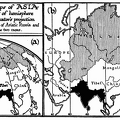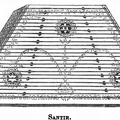In the Tsar Alexander I, who was never direct, this direct new imperialism met the old. Hitherto the kings and potentates of the world had taken themselves in good faith, had had the support of religion in their consciences, had believed they were serving God in their kingship, and that they were necessary to mankind and beneficial to mankind. In many cases they were no doubt swayed by very mixed motives, his majesty had “weaknesses,” his majesty almost always had a sensitive personal vanity. Sometimes, indeed, a born rascal like Charles II of England would have the grace or the gracelessness to laugh at himself, but the generality of kings and tyrants had the profoundest faith in themselves, and were sustained by the sincere faith of their loyal supporters. The emperor Charles V and his son Philip II, Charles I of England, Louis XIV, and the Tsar Alexander were all inspired by a complete assurance of their own righteousness, were convinced that opposition to them was sheer wickedness, wickedness to be overcome in any way and punished with the utmost severity.
- Author
- The Project Gutenberg EBook of The Outline of History - Being a Plain History of Life and Mankind, by H. G. Wells published 1920
- Posted on
- Sunday 12 April 2020
- Dimensions
- 630*620
- Tags
- Place:Russia, Tsar
- Albums
- Visits
- 1636
- Downloads
- 58
 Download Photo
Download Photo





